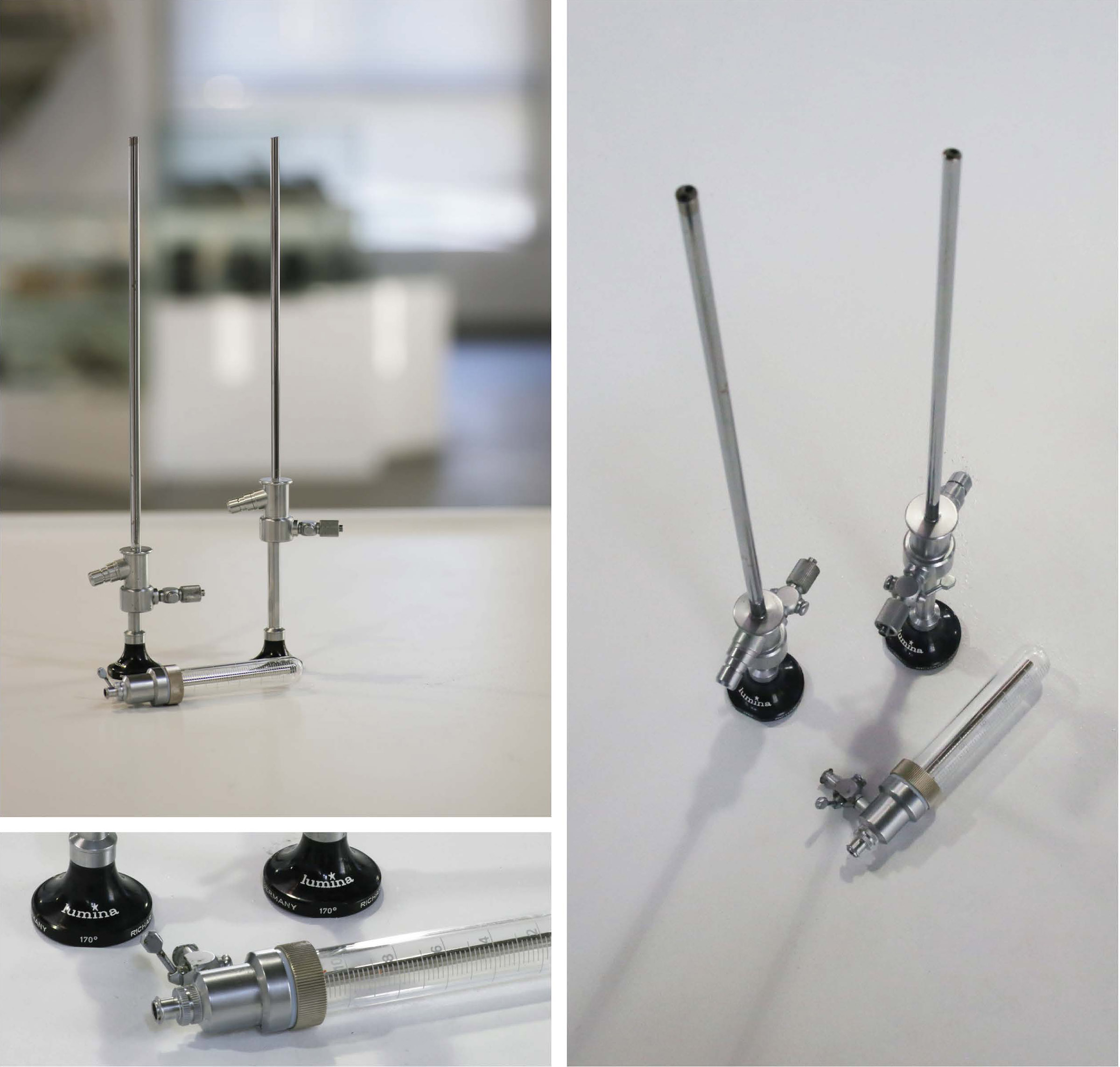For a Baby More
Blastocyst aspirator – Embryo transfer instrument
Inventor/author: Petar Radović
Manufacturer: Reichard Wolf G.M.B.H.
Place and time of production: Knittlingen, Federal Republic of Germany, 1970/71
Dimensions (cm): 31.3 . 6.8; 11.8 . 4.5
Inventory number: Т:11.1.7
Today, the term embryotransfer is mainly associated with human reproduction and in vitro fertilisation (IVF). The first “test-tube baby” was born in 1978 and the pioneer in this field, British scientist Robert Edwards (1925–2013) won a Nobel Prize for Medicine/Physiology in 2010. However, it is less known that the idea of embryo transfer, precisely for the purpose of achieving motherhood, was first entertained by Yugoslav gynaecologist-obstetrician Dr Petar Radović (1916–2011). Radović’s idea consisted of “taking” the embryo in the early stages of development, in the blastocyst stadium, from biological mother and “planting” it into the uterus of a woman who couldn’t conceive.
Radović presented his idea at the 5th Gynaecology and Obstetrics Congress in Sidney in 1967, raising a huge interest in professional circles. At the time, Edwards already explored the possibilities of human reproduction in laboratory conditions with his collaborator Dr Patrick Steptoe (1913–1988), but for the purpose of studying genetic changes in embryo. It wasn’t until 1968 that Edwards and Steptoe connected IVF and embryotransfer as procedures intended for procreation.
Radović couldn’t secure funds for his project from the Association of Medical Scientific Institutions of the Federal Republic of Serbia. He constructed an instrument for aspiration and transfer of embryo, manufactured it in Germany and began the procedure for protection of patent. The instrument, which is considered to be unused, was donated to the Museum by Dr Radović’s wife, Ms Mirjana Radović, in 2012.



